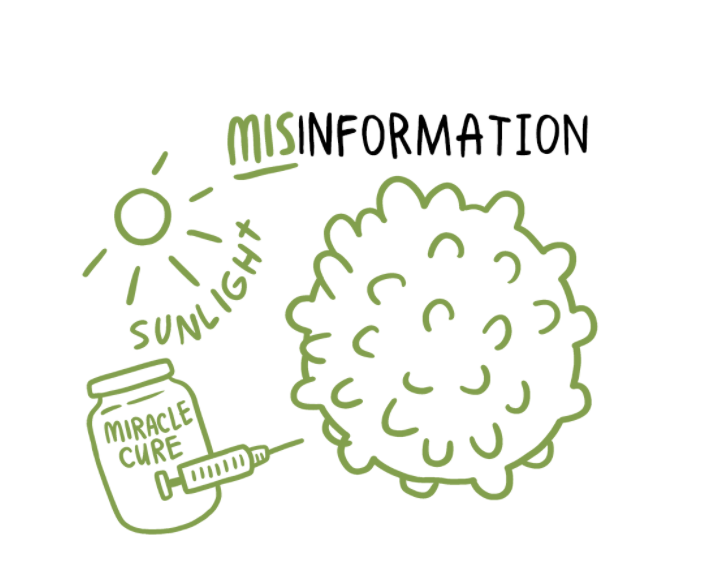
Infodemic Management
Keywords
Infodemic: overabundance of information – some accurate and some not – that occurs during an epidemic. It can lead to confusion and ultimately mistrust in governments and public health response.
Infodemic management: applying evidence-based interventions that bring understandable, localized evidence-based information to citizens and drive positive health-seeking behaviour.
The right message at the right time from the right messenger through the right medium can save lives - misinformation or mixed messages can cost lives.
Infodemic management uses many skillsets to prioritize and problem solve the issue of too much and inaccurate information about the current COVID-19 infodemic. The infodemic dimension should be considered a pillar of an integrative approach to public health in complex knowledge societies.
The history of public health in the 20th and 21st century is full of examples of how misinformation caused harm during outbreaks and continued to do damage in trust in health authorities long afterward. The tools at health authorities’ disposal have been limited and expertise siloed.
The stakes are higher in a digitized world, where misinformation and mixed messages overwhelm individuals and communities. This is not just a communication problem, but it requires a full rethinking of evidence-based approaches to infodemic management, putting people and communities at the centre.
How would we know if we have successfully mitigated/slowed down an infodemic? When communities and individuals are empowered to be resilient against misinformation, and have the skills and self-efficacy to recognize low-quality information and enact healthy behaviours. We will be successful when behaviours at all levels - individual, community, society, health system, government, and so on - have shifted to resist misinformation and act on and propagate accurate health guidance to flatten the epidemic curve.
The global fight against the COVID-19 infodemic should be treated as a scientific discipline on par with understanding the spread of the disease itself, since behavior change is critical to every pandemic response. During an epidemic, health authorities lean on the science of epidemiology to inform management and response activities: monitoring and outbreak response and implementing epidemic management interventions. Health authorities urgently need evidence-based infodemic management tools and interventions, informed by cross-disciplinary infodemiology research.
In early April 202, WHO has convened a public consultation to crowdsource ideas for an infodemic management framework, with a whole-of-society perspective. Everyone has a role to play in infodemic response, and from the response, it became clear that establishing the foundations of the science of infodemic management was a priority for all regions of the world.
In June 2020, WHO is convening the 1st WHO Infodemiology Conference, to discuss formation of a trans-disciplinary science that will underpin infodemic management and inform evidence-based infodemic management interventions.
News
All →Call for submission
Events
All →WHO EPI-WIN Webinar: empowering Community Health Workers (CHWs) through capacity strengthening for outbreak detection and response: lessons from the field
WHO EPI-WIN Webinar: the new face of pandemic preparedness: part one
WHO EPI-WIN Webinar: evidence for impact: advancing community centred responses to mpox
Publications
All →

Report of the WHO global technical consultation on public health and social measures during health emergencies
The global technical consultation on public health and social measures (PHSM) during health emergencies took place from 31 August to 2 September...

WHO third global infodemic management conference: whole-of-society challenges and approaches to respond...
From 20 October to 11 December 2020, WHO’s 3rd Virtual Global Infodemic Management Conference was set out to identify the top infodemic challenges...

